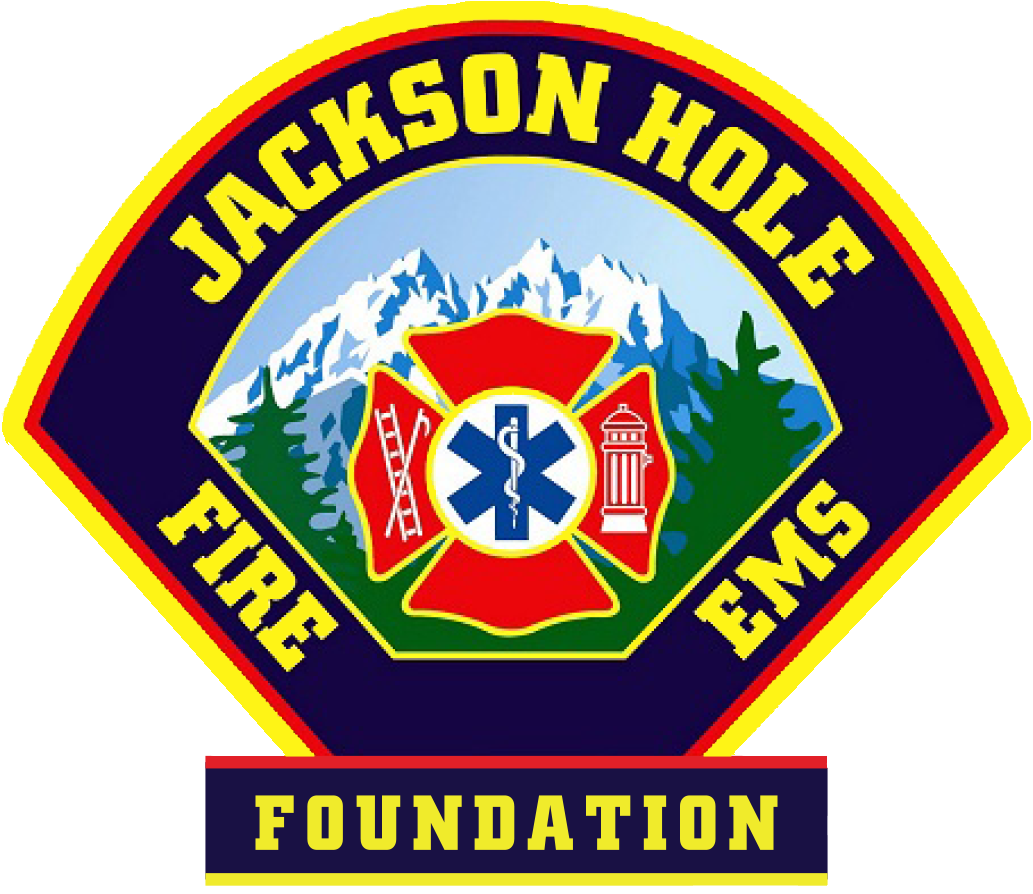
“Being ready. Being sharp. Having your battery charged on your radio. Having your gear organized and tight. Those are important things you can control because so many of this line of work is out of our control. By controlling these un-controllables, you can maximize your success down the line.”
Andrew Byron
Andrew Byron
Volunteer Lieutenant
Present
Where are you from? I am from here, right here in Jackson Hole. Yeah, I grew up all over the valley, and I did leave for college. I was always drawn back and moved back here in 2007.
What do you do for work? I can’t answer that. It’s too long an answer! I mean, I am the recently elected state legislator for House District 22, so a politician I guess. Also I was a long time outfitter and river guide as well as a proud real estate agent.
What do you do in your free time? Do you have any? I parent. I mean there’s nothing more that I love right now. My wife is pregnant and we’re having another baby in March (2023). We have a little boy right now; his name is Hugh. I have spent a lot of time at Snow King and I just love being on the water or in the mountains. I mean right now any of my free time is spent with my friends and family, but typically it’s any sort of outdoor recreation, I’m not an adventurous mountaineer like you or Dan (Long) or some of these other people, but I sort of checked that box when I grew up here and and had some pretty awesome adventures in the mountains and it definitely formed who I am. But now I like to keep it a little more tame and I love floating the river, I love skiing with my little guy, and traveling with my wife. I’m getting to be more of a homebody than I was. I think that happens as you get into your late 30s.
What is your role in the department? Currently, I am a lieutenant at Station 3. I was originally at Station 1 as a volunteer in 2016 or so. I was in the same recruit class as Pete Wilson, Kevin Rauch-Lynch, Kevin Spence, and Alton George. I worked my way through probation and when my wife and I bought a place in Hoback, it was a good landing spot at Station 3. There are a lot of characters and I’m one of them, good or bad.
So you said you have your EMR and then you also have swiftwater as well. What other certifications do you have? Swiftwater, Firefighter 2, I have not finished my Fire Officer yet, fire instructor, ADO. Every time one of those classes popped up, I just took it.
What initially made you want to join the department? I think the greater calling was to give back, and I know that’s a common answer, but I had watched it growing up. I’ll never forget as a kid, watching Stations 2 and 6, selling chicken fry tickets, and how exciting that was each year. The memory is so vivid in the front of my head, it’s crazy. I think that anyone that comes from an adventure background like you or I probably enjoys the adrenaline side of it, and then the giving back side is just so great to be able to serve the community. That was probably what really drove me to join and to continue and I will continue as long as they’ll have me.
Did you have a background in any of these hazards? I was a river guide so I had simple swiftwater training and simple medical training, but besides that, I was just the kid watching the fire trucks.
Do you have a preferred hazard to respond to these days? Probably swiftwater because I live at the mouth of the confluence of two rivers. And thank God, those incidents are very infrequent, but I do feel the burden down south because of where SAR is located that we should continue to be competent in initial whitewater response.
What are your future goals in the department? Right now, survival. No, I’m just here to serve. It’s always been a goal to become a captain but, like I said before, it’s a lot to do with the timing in my life and my career, and I think I need to spend more time learning and getting experience before I can go down that road to do my captain’s task book. I guess my ultimate goal is to continue to be flexible because we live in an ever-changing emergency response zone. And what I mean by that is that, as we up-staff career stations, how can these outlier stations first respond and give the patient the best care to hand off to the pros? So I would say that that is my goal is to be flexible and willing to learn and grow with career and volunteer staff and the chiefs.
What would you say is your favorite part of volunteering? The family at Station 3…we’re a bunch of teddy bears; we’re not actually that tough. I think it’s the family that has always existed at station 3, it just attracts a unique character and has for a hundred years. When I was growing up, I would say, ‘I’ll never live down there. That’s where those people live.’ And now I’m like, ‘Oh, wait, now I’m one of them.’ Be careful what you wish for! So I think what keeps me in it and what motivates me is the family aspect and that’s definitely what I like the most. Then, from there, it’s all the relationships outside of this internal station family throughout the valley that I’ve made thanks to Fire/EMS.
What would you say is the most challenging part? Juggling the work/life balance or volunteer/life balance. We have hundreds of hours of training and expectations to keep up, but it’s so, so important. It’s important to realize that if you aren’t able to find that balance, anything can suffer, especially family life, your mental health, you just feel this obligation to respond and help the community, but you have to take care of yourself first. So I’d say the challenge is trying to always strike a good balance and be respectful of knowing when to say no and knowing when to give it your all.
How do you personally strike this balance? It’s my goal to make 90% of the calls, but midday is just hard down south when we’re all scattered all over; there’s no one that works from home down in Hoback. So I try to balance it by forecasting what the next two to four hours will look like when the pager does go off, especially now with my family. Family comes first, so you have to know when to leave the pager at home just and have family time, and when I say family, I mean the greater family, not just the blood family.
What advice would you give new recruits? Don’t be scared, but be prepared for a commitment. Just commit to the time and follow through because when you come out on the other side you’re going to be very happy that you did. And then from there you can take it as deep as you want, that’s what’s great about JH Fire/EMS: It has a natural progression that allows people to really control their destiny within the department and pursue the things that really intrigue them. So I would tell them to put on their boots and get through your rookie 18 months and then figure out what you want to specialize in. Everyone gets drawn to something different, so be able to also apply your skills differently. Lean on your family, the fire family, lean on department folks…lean on people in your class and find a tight group of folks that are in the firefighter family and get through that rookie period because when you come out on the other side, it’s pretty rewarding.
Is there anything that you wish you had known when you started? Well, that’s a great question. No…I mean, at that time of my life, I had the time to do it. So I was pretty prepared for the time commitment. But you can never stop reading, and I can’t reinforce how much time it really is.
What would you say is the most valuable skill or trait for someone to have on the department, or in this line of work and emergency services in general?. Humility. Knowing to be humble because I think if you don’t have humility, you’re just risking everyone’s safety. Along the same lines, knowing when to say no or knowing when to change a strategy whether or not it’s on a swiftwater call, car wrecks, canyon stuff, anything. So I think humility, but also on top of that: preparedness. Being ready. Being sharp. Having your battery charged on your radio. Having your gear organized and tight. Those are important things you can control because so many of this, as you know, in this line of work is out of our control. By controlling these un-controllables, you can maximize your success down the line.
What do you contribute to the department? Time. I am not one to miss many things and my wife hates me for it. I also think I can contribute a unique view in terms of familiarity with a lot of different backgrounds. Obviously I am drawn to the river and because of my 20 years of guiding, I think I bring an even-keeled mindset about all situations.
Do you have anyone now, or in the past, who you particularly looked up to in the department? Dan (Long) for sure, especially as that Station 1 go-to-guy. He and Nate Levinson. Willy Watsabaugh. Mike Tepe. Those guys had decades plus of experience and they saw it all. I think we have a better fire service here now than we did then because of them. So, yeah, I’d say the old guard in general: Rusty Palmer, for example. Then I think it’s important to have a day-to-day mentor as well, outside of the old guard. I know I can lean on Captain Watson, even though I am far away from Station 6. There’s nothing I can’t ask any of the captains or leadership throughout the whole department. So I’d say, the two-party answer is the old school folks and then certainly career captains that I feel like, especially now, are always an open book and always a phone call away.
